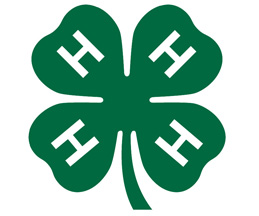
Nebraska 4-H is a partner in a statewide NASA-funded effort to boost science and mathematics education for students in more than 100 schools.
NASA is providing $750,000 to the Nebraska Department of Education, which will use it to fund programs in Nebraska schools with 21st Century Community Learning Centers.
The 21st Century Community Learning Centers are before- and after-school and summer programs in more than 100 schools across the state. Those schools have a diverse student enrollment and a high level of poverty with at least 40 percent of the students qualifying for free and reduced priced meals, according to the education department.
The program begins this summer, introducing teachers of fourth- through eighth-graders to NASA and the Nebraska 4-H Robotics curriculum by providing professional development in hands-on activities on four topics: robotics, rocketry, aviation and near and outer space.
Nebraska 4-H will provide professional development in the robotics area. "We will train teachers to run the robotics program," said Bradley Barker, 4-H science and technology specialist.
"We will train teachers to run the robotics program," said Bradley Barker, 4-H science and technology specialist. "This is a great opportunity. NASA brings lots of resources. We now have access to engineers and scientists from NASA, which we didn't have access to before."
The state's program is known as Nebraska Blast. Nebraska was one of 36 applicants and one of only nine to receive a NASA grant.
"We are pleased that we have yet another opportunity to help students who are considered at risk academically,'' said Roger Breed, Nebraska Education Commissioner.
The NASA curriculum will be introduced to teachers through regional workshops offered in Omaha, Lincoln, Columbus, Kearney and the Panhandle.
Forty hours of professional development will be provided each year in collaboration with the 21st Century Community Learning Centers, NASA Nebraska Space Grant Consortium and 4-H, part of University of Nebraska-Lincoln Extension.
The goal is to increase the number of future scientists, mathematicians and engineers by expanding participation to low-income and minority students.
"I am delighted that we have such a broad and diverse group of partner organizations ready to implement this year's Summer of Innovation program," said Leland Melvin, NASA associate administrator for education. "We look forward to building on the momentum that began last year, so we can engage and inspire even more middle school students to reach higher and pursue STEM career opportunities." STEM is a national initiative focusing on science, technology, engineering and mathematics education.